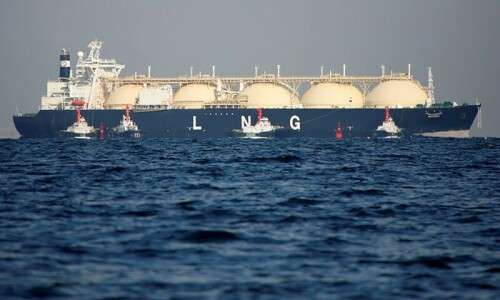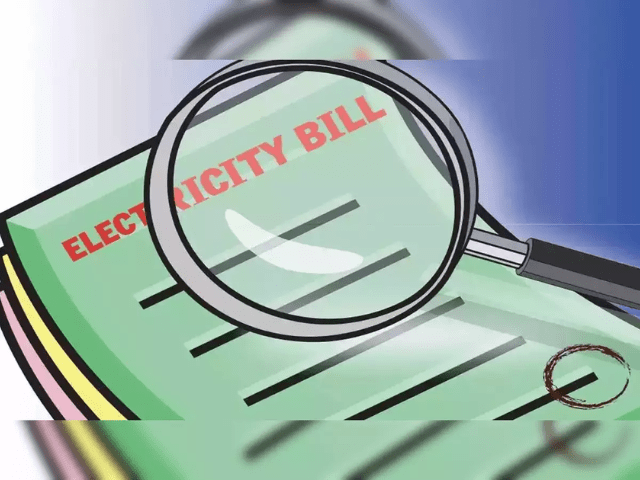In a significant development for Pakistan’s energy sector, Petroleum Minister Musadik Malik announced that the government has deferred its agreement to import liquefied natural gas (LNG) from Qatar for a year. The decision, which shifts the delivery of contracted LNG cargoes from 2025 to 2026, reflects the country’s current surplus of LNG and its efforts to manage energy consumption more efficiently.
LNG Supply and Demand Dynamics in Pakistan
Pakistan, like many countries, relies heavily on LNG imports to meet its energy needs. Natural gas constitutes a substantial portion of the nation’s electricity generation, with about one-third of the power produced from this fuel. However, the country’s energy landscape is evolving, with a noticeable decline in demand for LNG and natural gas in recent months. This shift has led the government to make strategic decisions regarding the importation of LNG, focusing on balancing supply and demand.
Current Surplus of LNG: The Context Behind the Deferral
Minister Malik explained that the decision to defer the LNG contract with Qatar comes at a time when Pakistan is experiencing a surplus of LNG in its reserves. Due to reduced energy consumption, the government sees no immediate need to bring in additional LNG cargoes. “We currently have a surplus of LNG, so we are not importing any new cargo,” Malik stated during a recent media briefing. This surplus can be attributed to several factors, including reduced industrial activity and lower household energy consumption during the colder months.
Power Consumption Declines Amid Higher Tariffs
According to Power Minister Awais Leghari, the decrease in electricity usage has been between 8-10 percent year-on-year over the past three quarters. This decline can largely be attributed to higher electricity tariffs that have curbed household consumption. “Higher tariffs have made electricity less affordable for many, particularly during the winter months, contributing to the drop in energy demand,” said Leghari. As a result, the need for LNG imports, which are primarily used for electricity generation, has been significantly reduced.
Deferring LNG Cargoes: Impact on Pakistan’s Energy Strategy
Pakistan’s decision to defer five LNG cargoes from Qatar is part of a broader strategy to reduce unnecessary imports and avoid overstocking. This move allows the country to better align its LNG purchases with the current market conditions and demand forecasts. “There were no financial penalties for deferring the LNG order, as the decision was a temporary delay, not a cancellation,” Malik clarified.
In addition to the deferred cargoes from Qatar, Malik revealed that Pakistan is in negotiations to defer five more LNG shipments from other international suppliers. While the names of these sellers have not been disclosed, the government is working to ensure that it only imports LNG when it is truly needed.
Negotiations with Other Markets and Future Projections
The government’s efforts to defer LNG shipments are not limited to Qatar. Pakistan is in active discussions with other international LNG suppliers, exploring the possibility of deferring additional cargoes. This approach is designed to give Pakistan more flexibility in managing its energy resources, while avoiding the risk of overpaying for LNG when it is not required.
Electricity Tariffs and Consumption Patterns
To further manage energy demand, the government has made adjustments to electricity tariffs. In an effort to boost consumption during the winter months and reduce reliance on natural gas for heating, the government announced plans to lower electricity tariffs. This policy aims to stimulate household energy use without putting excessive pressure on the gas supply.
Spot LNG Market and Price Volatility
In addition to the deferral of long-term LNG contracts, Pakistan has opted not to buy LNG on the spot market due to the volatility in prices. As Minister Malik mentioned in June, Pakistan is unlikely to purchase any spot LNG cargoes until at least the start of the winter season. The combination of oversupply and high prices in the spot market has made it an impractical option for Pakistan.
At the end of 2023, Pakistan had canceled its spot LNG tender for delivery in January, due to an oversupply situation in the global market and a lack of interest from domestic buyers at the current prices.
Challenges and Opportunities in LNG Imports
Despite the current surplus, Pakistan faces ongoing challenges in managing its energy imports. The country has to balance its energy security needs with the financial implications of importing LNG at market prices. The price of LNG can fluctuate based on global demand and supply, making it a volatile commodity. As Pakistan looks to secure long-term energy solutions, it must also navigate these market dynamics to ensure a stable and affordable energy supply for its citizens and industries.
Crude Oil Imports from Russia: Restarting Talks
In addition to the LNG deferral, Minister Malik addressed the ongoing discussions with Russia regarding crude oil imports. While local media reports suggested that Pakistan was about to finalize an agreement to import crude oil from Russia on a monthly basis, Malik denied these claims. However, he did confirm that the government has resumed talks with Russia to address obstacles such as insurance, shipping arrangements, and deal structures.
Pakistan’s Previous Agreement with Russia
In 2023, Pakistan signed a deal with Russia to import crude oil for local refining. Under this arrangement, Pakistan received a 100,000 metric tonne shipment to the state-owned Pakistan Refinery Limited. The deal allowed Pakistan to purchase crude oil at a discounted rate, paid for in Chinese yuan. This deal marked a significant step in diversifying Pakistan’s crude oil supply sources and reducing its reliance on traditional suppliers.
Economic Implications of Energy Decisions
The deferment of LNG cargoes and ongoing negotiations with Russia highlight the complex energy challenges facing Pakistan. With energy demand fluctuating and global prices remaining unpredictable, the government must continue to adopt flexible strategies to safeguard the country’s energy security while minimizing financial burdens on consumers and the economy.
The focus on deferring LNG cargoes and securing affordable crude oil imports is part of Pakistan’s broader strategy to stabilize energy costs and ensure a steady supply of power to its industries and households.
Frequently Asked Questions (FAQs)
1. Why has Pakistan deferred its LNG contract with Qatar?
- Pakistan deferred its LNG contract with Qatar due to a current surplus of LNG and reduced domestic demand for energy. The government opted to delay the importation of LNG cargoes for one year to align with the country’s changing energy needs.
2. Will Pakistan face any financial penalties for deferring the LNG agreement?
- No, Pakistan will not face financial penalties for deferring the LNG agreement. The decision was a temporary delay and not a cancellation, allowing flexibility without incurring extra costs.
3. What factors have contributed to Pakistan’s reduced demand for LNG?
- The reduction in LNG demand can be attributed to lower electricity consumption, which has dropped by 8-10% year-on-year due to higher tariffs that have reduced household usage.
4. Is Pakistan still importing LNG on the spot market?
- No, Pakistan has refrained from buying LNG on the spot market due to oversupply and high prices, making spot LNG purchases unfeasible.
5. What is Pakistan’s approach to crude oil imports from Russia?
- Pakistan has resumed discussions with Russia to address logistical challenges and ensure the smooth importation of crude oil for local refining. However, no final agreement has been reached yet.
Conclusion
Pakistan’s decision to defer LNG imports from Qatar is a strategic move in response to a surplus of LNG and reduced demand. While the country faces challenges in managing its energy resources, it is actively pursuing negotiations with international suppliers to ensure energy security while minimizing costs. By deferring shipments and exploring alternative energy agreements, Pakistan is positioning itself to better navigate the complex energy landscape in the coming years.



